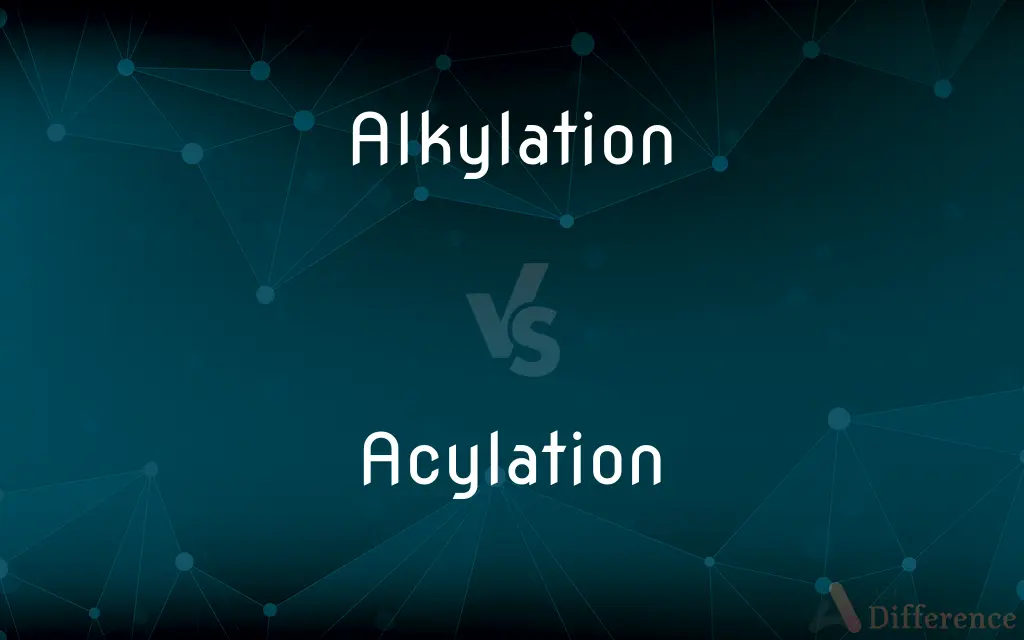Alkylation vs. Acylation — What's the Difference?

Difference Between Alkylation and Acylation
ADVERTISEMENT
Compare with Definitions
Alkylation
Alkylation is the transfer of an alkyl group from one molecule to another. The alkyl group may be transferred as an alkyl carbocation, a free radical, a carbanion or a carbene (or their equivalents).
Acylation
In chemistry, acylation (or alkanoylation) is the process of adding an acyl group to a compound. The compound providing the acyl group is called the acylating agent.
Alkylation
To add one or more alkyl groups to (a compound).
Acylation
(organic chemistry) The process of adding an acyl group to a compound.
Alkylation
(organic chemistry) Any reaction in which an alkyl group is added to a molecule; used in the production of high-octane petroleum fuels.
ADVERTISEMENT
Acylation
The process of introducing an acyl group into a compound
Share Your Discovery

Previous Comparison
DRAM vs. SRAM
Next Comparison
Polytechnic vs. School













































